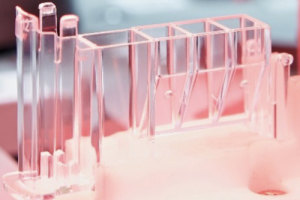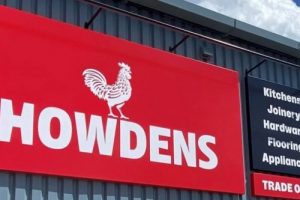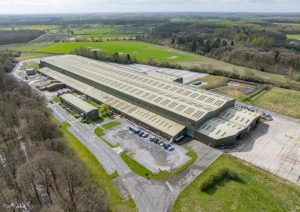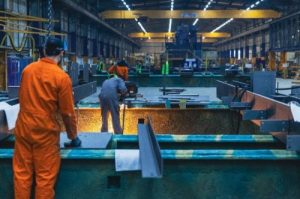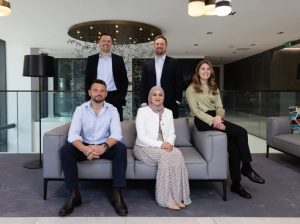Global medical tech firm opens consolidated site

JOHNSON & JOHNSON is a household name, but not many people know of their major and historical presence in Leeds, recently cemented with their consolidated, revamped facilities in Beeston.
With 10,763 sq ft of R&D facilities, and 86,111 sq ft offices the orthopaedic research and development arm of Johnson & Johnson, DePuy Synthes has gathered all its forces onto the one site.
Tom Lavery, managing director of DePuy Synthes in the UK and Ireland, took some time out of his day to impart some of his considerable knowledge on the history of the firm in Yorkshire, and why the firm’s love affair with Leeds has lasted so long.
Mr Lavery told me that the firm’s history in the city goes back to 1902 with the Thackray medical business, which may ring a bell because of the Thackray Medical Museum (well worth a visit if you aren’t too squeamish)
Charles Thackray and his business partner, accountant Scurrah Wainwright, partnered with Sir John Charnley at Manchester Royal Infirmary to pioneer the first hip replacement.
The Thackeray company moved to Beeston in 1957 and they grew as a company based on the sale of the hip replacement, the Charnley hip replacement which is still used today, and starting a heritage of collaboration between the medical and manufacturing industries in the city.
Mr Lavery said: “We’ve obviously gone on to expand across orthopaedic products, we cover A&E trauma, sports medicine and we make products for spinal care, strokes, degenerative diseases and neurological products now.” – a far cry from the limited range of the firm in thr 20th century.
The histories of DePuy and Thackray in England converged when DePuy acquired Thackray to expand the orthopaedic credentials of their parent firm Corange.
In 1998 DePuy itself was acquired by Johnson and Johnson to boost its own orthopaedic company, which had previously centred around knee rather than hip replacement, then merged with Swiss firm Synthes in 2012.
“We’ve stayed in Leeds because of our history here, we have deep roots and a strong legacy here. With links to the academic community particularly at the University of Leeds, although they are completely independent of us we collaborate frequently on medical research.
“Mike Barker our worldwide vice president is a graduate of Leeds, and graduates from the university are located around the world.
“We have strong links with local government and local charities and are part of the community.
“We are a big company, we could put our international offices anywhere outside of US, but we chose not to, as there is a strong government-driven agenda towards the life sciences, and the government are good at retaining and encouraging life science organisations and attracting foreign investment.”
Over 550 people work for DePuy in Leeds, and including their Tingley distribution centre, the firm employs 650.
On the subject of skills shortages, which have cropped up now and again as an issue in the manufacturing industries, Mr Lavery said: “We have very good retention rates for staff, but we don’t do a good job at marketing Yorkshire as a brilliant place to live.
“In the 1990s we used to think being away from London would be a problem, but Leeds is quietly a health city. The university is orientated towards healthcare-related and medical science research, with some of the biggest teaching and research hospitals.
“Here, world renowned surgeons working across neuro spinal, knee and hip and trauma, and a lot of innovation comes from hospitals and also smaller businesses.”
He said: ” We need to encourage how industry works with the health system and public, and innovate in healthcare and disperse throughout the system. Thankfully the way we’re set up here is unique, people see the the life sciences as a great skill set and the NHS has been a source of innovation, and seen worldwide as a great healthcare provider.”
Having worked for the firm for the past 22 years, since leaving school, Mr Lavery said: “I’m passionate about the things we do, they really are life changing, the products we develop take the pain away and give people back mobility, and I think that’s fundamentally different from selling photocopiers and staplers.
“Our employees have a passion for what they do and the outcomes that our products deliver across the world make it worthwhile.”

